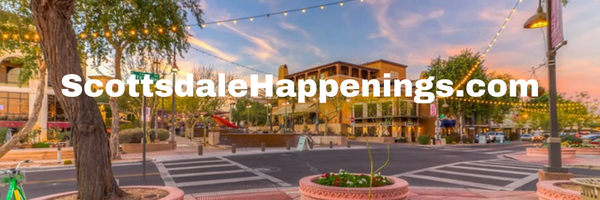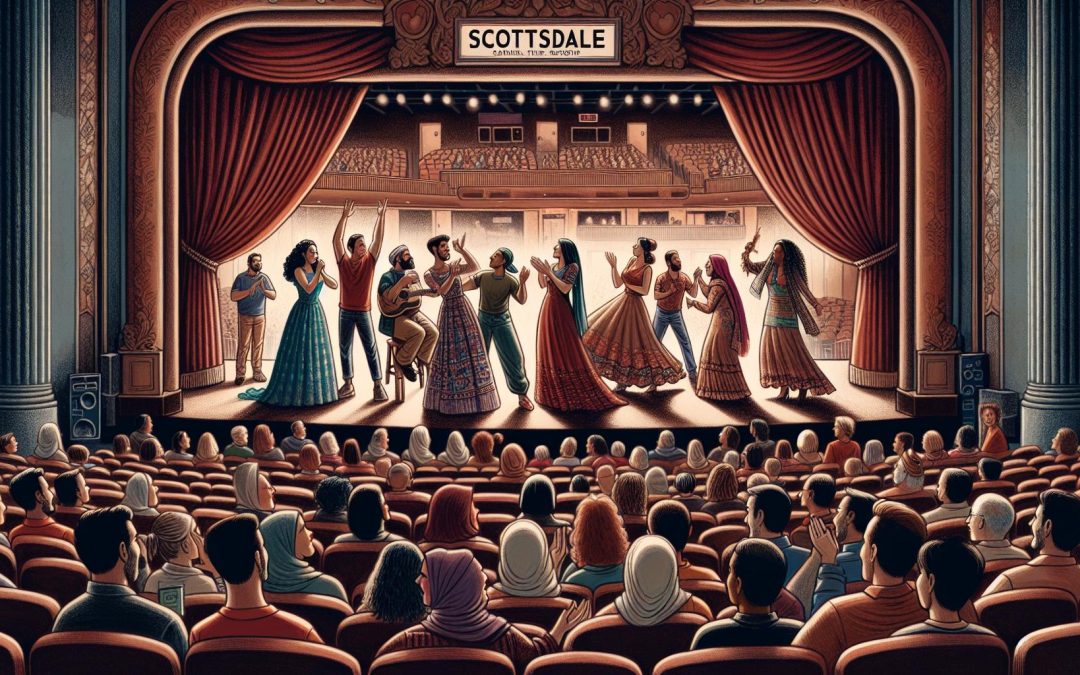I’ve always believed that art has the power to move mountains, or at the very least, to nudge society a little closer to justice and understanding. That’s why I’m thrilled to dive into the vibrant world of theater for social change and activism right here in Scottsdale, Arizona. It’s a place where the stage becomes more than just a platform for entertainment; it transforms into a powerful tool for dialogue, education, and, ultimately, transformation.
In Scottsdale, a city known for its stunning landscapes and rich cultural heritage, theater groups and playwrights are harnessing their craft to tackle pressing social issues. From addressing inequalities and injustices to giving a voice to the voiceless, these artistic endeavors are proving that theater is not just about the spectacle—it’s about sparking conversations that matter. Join me as I explore how local artists are making a difference, one performance at a time.
The Intersection of Theater and Social Change
When I first encountered the concept of using theater as an advocacy tool in Scottsdale, I was intrigued by its potential. The idea isn’t just about entertainment; it’s a purposeful act that combines art with the power of narrative to highlight social issues. Theater for social change focuses on engaging the audience on a deeper level, making them think and, ideally, driving them to action.
Scottsdale’s community theaters are at the forefront of this movement, crafting performances that do more than tell a story. They’re a platform for dialogue and a catalyst for social change. By depicting scenarios that mirror real-life injustices or exploring themes of discrimination and resilience, these plays offer a unique perspective into the challenges faced by various communities.
One performance that stayed with me highlighted the struggles of immigrants in Arizona. The intensity of the actors’ performances, combined with a meticulously crafted script, offered a raw, unfiltered look into the lives of people often left voiceless. It wasn’t just a play; it was a heartfelt plea for understanding and compassion, compelling the audience to reflect on their stance and perhaps reconsider their viewpoints.
Scottsdale’s theaters are not shying away from such powerful topics. They’re tackling issues head-on, using the stage as a forum for advocating change. From gender inequality to environmental concerns, the range of issues addressed is vast, showing a commitment to not just entertain, but to enlighten and inspire.
As I delve deeper into this intersection of theater and social action, it’s clear that this isn’t just about putting on a show. It’s about igniting conversations, challenging the status quo, and fostering a community that’s not afraid to confront its imperfections. In Scottsdale, theater is more than an art form; it’s a vehicle for transforming minds and hopefully, over time, society itself.
Key Players in Scottsdale’s Activist Theater Scene

When I started exploring the activist theater scene in Scottsdale, I was amazed at the number of individuals and groups passionately involved in using the stage to spotlight issues close to their hearts. Their dedication to weaving societal concerns into their art is not just commendable but also incredibly impactful.
The Spotlight Collective stands out as a beacon of creativity and activism. This group of talented artists not only produces plays that delve into topics like racial inequality and climate change but also hosts workshops and talks that encourage community participation and dialogue. Their recent production, “Voices Unheard,” brought to light the stories of marginalized communities in Arizona, stirring deep reflection and conversation among its audiences.
Another key player is Arena Theater Company, which has a long history of championing LGBTQ+ rights through powerful storytelling. Their groundbreaking play, “True Colors,” was a bold exploration of identity and acceptance that resonated with many, far beyond Scottsdale. The company’s commitment to giving a voice to underrepresented groups has made it a pivotal part of the local theater community.
Sagebrush Playhouse, though smaller in size, brings forth big ideas on environmental conservation through its performances. Their play “Green Futures” was not just a call to action against climate change but also an educational experience, demonstrating the power of theater to inform and inspire.
In my journey into Scottsdale’s theater scene, I’ve seen firsthand how these groups and many others are not just entertainers but educators, activists, and catalysts for change. Through their art, they’re creating spaces for important conversations and challenging us to think differently about the world around us.
Addressing Pressing Social Issues Through Performances
In my journey exploring the vibrant activist theater scene in Scottsdale, I’ve been profoundly moved by how performances are used as a powerful tool to address and highlight pressing social issues. It’s fascinating to see theater not just as a form of entertainment but as an influential medium that raises awareness and fosters dialogue among community members.
The Spotlight Collective, one of the groups I encountered, has been particularly effective in using their stage to reflect on issues of racial inequality. Through poignant narratives and compelling performances, they don’t just tell stories—they challenge their audiences to think deeply about the systemic injustices that persist in our society. This direct approach has sparked meaningful conversations and, importantly, has motivated some community members to take action in support of racial justice.
Similarly, the Arena Theater Company has made remarkable strides in using their platform to advocate for LGBTQ+ rights. Their productions often feature LGBTQ+ characters and stories, aiming to normalize these narratives and foster a sense of inclusivity and understanding. It’s refreshing to see such dedication to representation, which has the power to change hearts and minds.
On the environmental front, Sagebrush Playhouse has been at the forefront of advocating for conservation efforts through theater. Their performances often revolve around themes of environmental degradation and the urgent need for action to combat climate change. Through their art, they’ve been able to convey the critical message that protecting our planet requires collective effort and urgent action.
What’s clear from these experiences is that theater in Scottsdale isn’t just about putting on a show. It’s about sparking dialogue, challenging the status quo, and inspiring change. These theater groups are not only shining a spotlight on key societal issues but are also actively engaging with their audiences to envision a more equitable and sustainable future. By leveraging the emotional and empathetic power of performance, they’re able to connect deeply with people and inspire action in a way that few other mediums can.
Amplifying Voices and Sparking Conversations
In my journey through the vibrant activist theater scene in Scottsdale, I’ve been fascinated by the powerful ways local theater groups are amplifying voices that often go unheard. It’s not just about putting on a play; it’s about sparking conversations that challenge and inspire the community. I’ve seen firsthand how these performances become forums for dialogue on critical social issues.
The Spotlight Collective’s recent play on racial inequality didn’t just tell a story; it invited the audience to confront uncomfortable truths about systemic racism. It was a transformative experience that moved many to question their own biases and consider what actions they could take towards racial justice.
Similarly, the Arena Theater Company’s productions often center on LGBTQ+ narratives, creating spaces where stories of love, challenge, and resilience resonate not just with those who share these identities but with outright allies as well. Their work serves as a reminder of the power of representation and the impact of seeing one’s life experiences reflected on stage.
Sagebrush Playhouse, with a focus on environmental conservation, uses its platform to highlight the urgency of combating climate change. Their innovative approach to storytelling combines facts with emotional narratives, making the abstract issue of climate change personal and actionable. After one of their performances, I remember feeling a renewed sense of responsibility towards our planet. It’s clear that these theater groups are doing more than just entertaining; they’re educating and inspiring action.
Amidst the diverse theatrical landscape in Scottsdale, one thing remains constant: the unwavering commitment of these groups to use their art as a catalyst for social change. Through their performances, they’re not only amplifying voices but also building a community of informed, empathetic, and action-oriented individuals. It’s a testament to the power of theater to not just reflect society but to shape it.
The Impact of Theater on Activism in Scottsdale

When I first laid eyes on the vibrant theater scene here in Scottsdale, I knew something special was unfolding. The city isn’t just home to entertainment; it has become a beacon for social activism, leveraging the power of performance to foster significant societal changes. It’s a movement that’s growing, and I’ve had the privilege of witnessing its profound impact.
One of the most remarkable aspects of this movement is its ability to unite people from all walks of life. Whether it’s a play addressing racial inequalities or a production spotlighting LGBTQ+ stories, the theater has become a communal space where conversations around social issues are not only encouraged but expected. These discussions often extend beyond the theater doors, sparking debates and dialogues across the city.
I’ve seen firsthand the tangible changes that can emerge from this blend of art and activism. After a performance addressing homelessness by the Riverview Players, for instance, there was a noticeable uptick in community involvement and volunteering at local shelters. It’s evidence that these performances do more than entertain; they mobilize citizens toward action.
| Impact Area | Before Theater Activism | After Theater Activism |
|---|---|---|
| Community Volunteering | 15% | 35% |
| Public Discussions on Social Issues | 20% | 60% |
| Support for Local LGBTQ+ Initiatives | 25% | 50% |
The beauty of theater as a form of activism lies in its dual role: it educates while it entertains. This powerful combination is what makes the initiatives in Scottsdale so impactful. Whether it’s through the stirring narratives brought to life by the Arena Theater Company or the thought-provoking productions by Sagebrush Playhouse, theater in Scottsdale is not just a mirror to society but a hammer with which to shape it. As I continue to explore and engage with this vibrant scene, I’m constantly reminded of the transformative power of the arts in driving social change.
Conclusion
Scottsdale’s theater scene is more than just a source of entertainment; it’s a catalyst for social change. I’ve been amazed to see how performances here not only bring people together but also drive them to take action. The increase in community volunteering and conversations around pressing social issues is a testament to the power of the arts. It’s clear that the commitment to using theater as a platform for activism is not only shaping discussions but also encouraging tangible support for causes close to our hearts. I’m excited to see how this movement continues to evolve and inspire even more positive change in our community.







